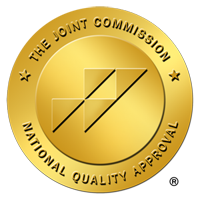Many people who have struggled with addiction or whose families have struggled with addiction wonder how long it takes to rewire the brain from addiction.
How Long to Rewire Brain from Addiction
Anyone who has struggled with addiction will notice initial euphoria but repeated exposure starts to result in compulsions, losing control over your decisions and adopting harmful habits that impact things like finances, health, and personal relationships.
This is due to the way the chemicals in drugs interact with the reward system in the brain. A simple way that this effect is commonly discussed is that addiction hijacks your reward system.
The reward system is in place to release things like dopamine and serotonin creating a natural high as a result for doing healthy, supportive behaviors like exercising or eating a healthy meal. With drugs, those feelings can be amplified to a degree that cannot be achieved under normal circumstances making it difficult to feel anything positive from things like exercising or eating a healthy meal after several months or years of abuse.
So, just as the brain’s neuroplasticity can change because of the impact of regular drug use or addiction, you can reverse those changes with detox and treatment.
The length of time required to rewire your brain from addiction is based on personal circumstances and can range anywhere from a month to several years.
What Impacts the Time it Takes to Rewire the Brain from Addiction?
There are several things that impact how long it takes for your brain to be rewired after addiction primarily having to do with your genetics and physical and mental health, as well as your history of drug abuse. If, for example, you have struggled with addiction for several years, the damage may take longer to reverse compared to someone who has only struggled with addiction for two months but in both cases it’s possible with proper detox and the right types of therapy.
Proper Detox
Detox is an essential starting point for rewiring your brain circuits. During the detox process your body will flush out any remaining toxins that are having an impact on your neural circuitry. Once this is done you can start the remainder of your treatment to help overcome areas of your brain that have been negatively impacted by addiction.
Type of Care
There are several levels of care available to those who are struggling with addiction. One is not necessarily better than the other but if you have a long history with addiction, a residential program will provide the most comprehensive and supportive environment for you to focus on rewiring your brain.
If you have struggled with addiction and are participating in an outpatient level of care where you travel back and forth between your regular environment and your treatment center, it may take longer to rewire your brain because most of your day is still focused on regular activities rather than therapy, emotional regulation skills, and other healthy activities.
Types of Therapy
The types of therapy that you use during the course of your treatment can have an impact on how long it takes to rewire your brain. For example, TMS is a cost-effective and safe therapeutic tool that can provide stimulation to targeted areas of your brain with maladaptive brain circuitry. In effect, areas of the brain that are not working the way they should because of changes brought about by addiction can be rewired to perform the way they did before addiction.
Getting Help Rewiring the Brain from Addiction
At American Detox and Treatment Center, we believe in addressing more than just the physical aspect of addiction. We help by treating the whole person including underlying psychological and emotional factors that might have led to addiction.Our detox program lasts up to 10 days followed by a 30-day residential program to help meet your needs. Restructuring the brain takes time and during that time we will provide a structured environment for ongoing support, therapy, and education.
Call our team today at 1-877-834-0775 to get started.
FAQs about Addiction Recovery
How does addiction rewire the brain?
Addiction can rewire your brain in many ways, doing things like changing neural connections, interfering with communication between neurons, turning genes on or off in your DNA, and altering things like cellular function. Alcohol, for example, can cause a change in gene expression in your memory circuits which results in changes to neural function and dopamine receptors whereas cocaine can cause a change in your gene expression that results in seeking out more cocaine.
If you rewire the brain from addiction is it permanent?
Nothing you do to change your brain will be permanent either good or bad. The brain has neuroplasticity which means it is always changing and always growing. It is perfectly normal to start your recovery and then years later get queued by the side of an old hangout or the smell of alcohol that triggers a temporary relapse. These relapses don’t indicate a failure but rather an opportunity for continued learning and growth, continually applying what you’ve learned to help rewire your brain.
Can physical damage to the brain from addiction be reversed?
Yes, some can be reversed, especially that done by alcohol abuse. Over time regular alcohol abuse can cause certain parts of your brain to shrink but that brain volume can be increased the longer you sustain your sobriety.
How can the brain function if it’s damaged by addiction?
With addiction, some parts of your brain get rewired or damaged. However, science shows us that when people enter recovery and try to learn to rewire the brain, the brain will find a way to avoid using damaged areas and regain things like working memory, building new neural pathways. With regular therapy and practice, you can learn how to train your brain to use the new pathways that it has developed.
How quickly can I rewire the damage from addiction in my brain?
There is no magical fix to quickly rewire the damage that addiction has done. Recovery doesn’t take a few days but it can take several months or even a year depending on how long you have struggled with addiction and what substances you have used.


